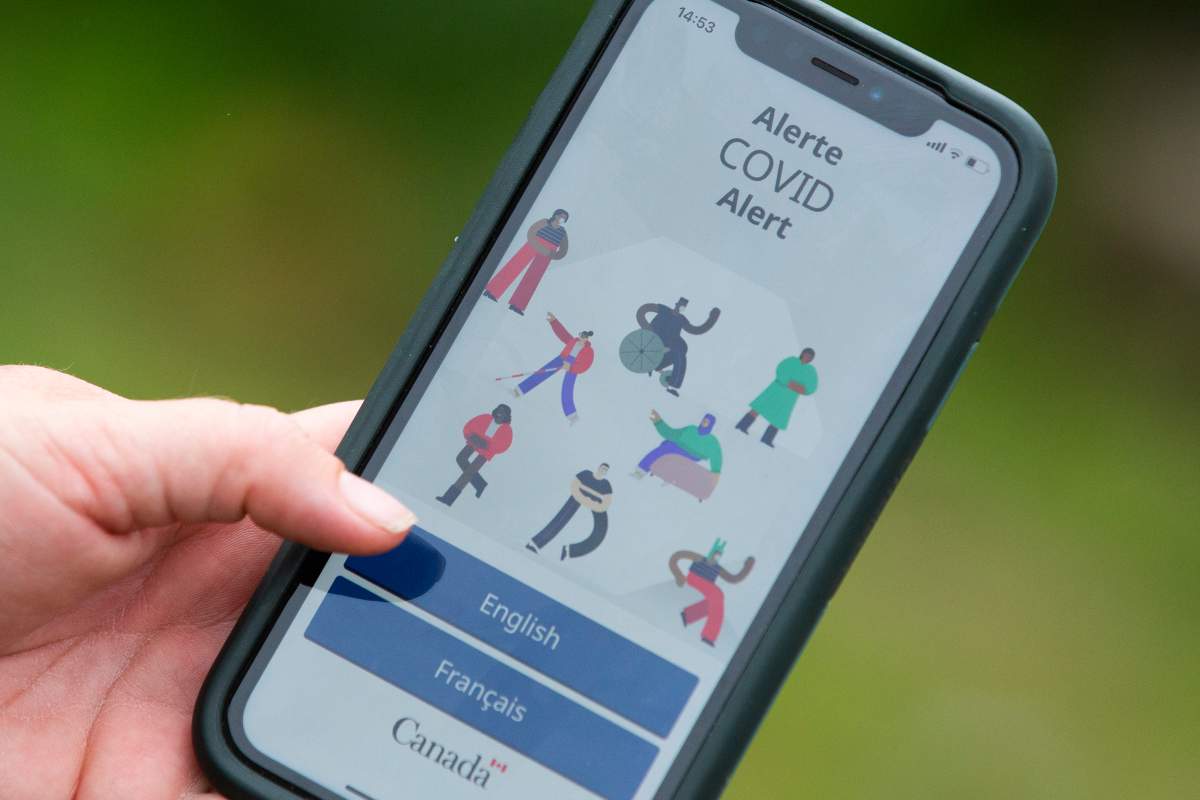
Answering reporter questions on Monday, Henry said the app has been a challenge for British Columbia because there are some parameters built into the federal app that are frustrating, including the length of time the app stores tracing data.
“We are still negotiating with the federal government about modifying it to meet the needs so that it would be useful for us,” Henry said.
“What we really would like to see is an app that we could download when we’re at a celebration or a party or a church service so that we can identify those specific times when there may have been somebody with COVID who was in that vicinity.”
The app is currently working in Manitoba, New Brunswick, Newfoundland and Labrador, Nova Scotia, Ontario, Prince Edward Island, Quebec and Saskatchewan.

Get weekly health news
The app has been downloaded 4,805,411 times across the country.
The COVID Alert app aims to help mitigate the spread of the coronavirus in Canada by notifying a user when they have been in close contact with another user who tested positive for the virus.
In order to trace someone’s exposure, the app uses Bluetooth to exchange random codes with nearby phones. It does not use or access any location data, the website states.

If a user tests positive for the coronavirus, they will receive a diagnosis key from a public health official to enter into the app. Once the user enters the key into the app, it will ask the user for permission to share the random code with a central server.
Other phones using the app then check the central server, and if records any codes that match the one in the server, the user will be notified that they have been exposed in the past 14 days.
British Columbia has expressed concern over how long back the tracing goes.
“Right now it’s very non-specific and it goes back for 14 days, which to us doesn’t make a lot of sense because people are not infectious for 14 days before their test comes back. I know they’ve committed to addressing some of those issues, but we’ve not reached an agreement to address the issues,” Henry said.
“It’s not at the point where it would be helpful for what we’re managing here in B.C. for our pandemic right now.”
With files from Katie Dangerfield









Comments
Want to discuss? Please read our Commenting Policy first.